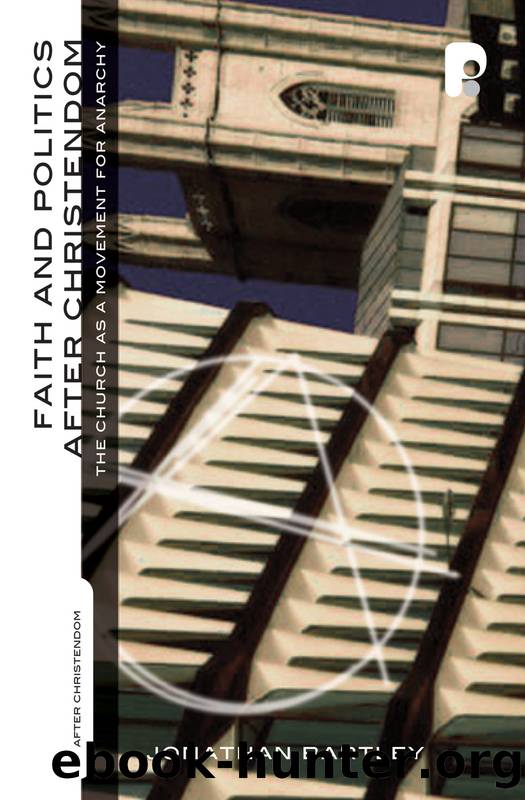Faith and Politics after Christendom by Bartley Jonathan;

Author:Bartley, Jonathan;
Language: eng
Format: epub
Publisher: Authentic Media
7
Signs of Contradiction
In George Orwellâs Animal Farm, the revolutionariesâ Seven Commandments are eventually reduced to just one: âAll animals are equal, but some animals are more equal than others.â1
In the last chapter, we saw how the church is engaging politically and flexing its muscle. It is taking most of the political opportunities it can find, defending old methods of engagement and creating new ones. But it is doing so quite uncritically. In the main, it accepts the values of the political system and is happy to engage in it in the same way that everyone else does.
But as it emerges from Christendom â a context in which it wielded power and influence â the church does not automatically begin from the same point as everyone else. It brings with it baggage from another era. Christendom may have passed but its ecclesiastical and social vestiges remain,2 and this has an impact both on how the church engages politically and on how others interpret its political activity.
The church may be fragmented and Christians may hold different political beliefs and positions, but the outside world does not easily make such distinctions and often considers Christians as a single entity. The âpost-denominationalismâ of the post-Christendom church in general, and the advent of para-church campaigning groups in particular, further confuses the picture. Our uncritical engagement in the political system can lead to a number of difficulties and apparent contradictions, especially when it comes to the churchâs political witness.
Download
This site does not store any files on its server. We only index and link to content provided by other sites. Please contact the content providers to delete copyright contents if any and email us, we'll remove relevant links or contents immediately.
Signature in the Cell: DNA and the Evidence for Intelligent Design by Stephen C. Meyer(2879)
Real Sex by Lauren F. Winner(2867)
The Holy Spirit by Billy Graham(2777)
The Secret Power of Speaking God's Word by Joyce Meyer(2754)
The Gnostic Gospels by Pagels Elaine(2399)
Jesus by Paul Johnson(2229)
Devil, The by Almond Philip C(2205)
23:27 by H. L. Roberts(2144)
The Nativity by Geza Vermes(2115)
Chosen by God by R. C. Sproul(2055)
All Things New by John Eldredge(2052)
Angels of God: The Bible, the Church and the Heavenly Hosts by Mike Aquilina(1870)
Angels by Billy Graham(1844)
The Return of the Gods by Erich von Daniken(1841)
Knowing God by J.I. Packer(1724)
Jesus of Nazareth by Joseph Ratzinger(1708)
Evidence of the Afterlife by Jeffrey Long(1705)
The Gnostic Gospel of St. Thomas by Tau Malachi(1680)
How To Be Born Again by Billy Graham(1670)
